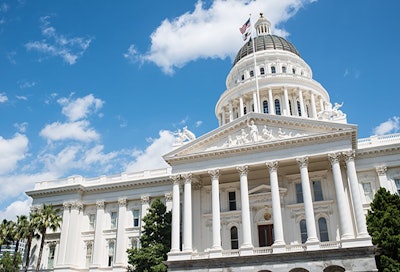
Citing the hurdles that a federal private banking system has thrown at the state’s burgeoning cannabis industry, California State Treasurer John Chiang stepped up efforts this week to study the creation of a public bank for cannabis operators. Not only has the public expressed a “deepening public dissatisfaction and cynicism over the private banking system,” he said in remarks on Jan. 30, but the federal government has yet to offer a firm position on the economic trends behind cannabis legalization in the U.S.
“It should surprise no one that more and more Californians are seeking a better alternative,” Chiang said. “One that puts their interests first, rather than last. History suggests that people support the idea of a public bank whenever private banks fail to serve community interests.”
In late 2016, Chiang created the 18-member Cannabis Banking Working Group, which sussed out public opinion on banking alternatives. With much of the conversation veering toward this idea of a state-backed banking system for the cannabis industry, Chiang this week issued a formal request for information (RFI) that will “collect information on methods, approaches and qualified consultants” in the service of further study.
“Today we are taking the next steps in determining the practical considerations that could lead to the creation of a public bank,” Chiang said “Is there a solution there? Maybe. Or is it like a potato chip? It tastes good going down, but is ultimately of no nutritional value.”
California’s legal adult-use market has been operating since Jan. 1, of course, giving Chiang’s office a sense of added urgency to the matter at hand.
Currently, a 2014 federal Financial Crimes Enforcement Network (FinCEN) memo remains on the books as a bit of guidance and careful prioritization for banks that may open or close accounts with marijuana-related business. But the federal Controlled Substances Act remains a legal counterpoint, causing industry-wide uncertainty.
"Until the slow, clunking machinery of the federal government catches up with the values and will of the people it purportedly serves,” Chiang said, “states like California will continue to both resist, and more importantly, to lead.”
Top photo courtesy of Adobe Stock
























